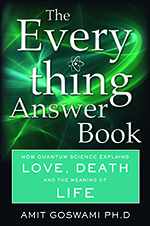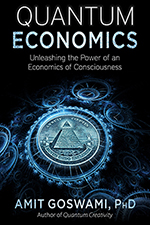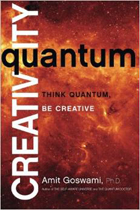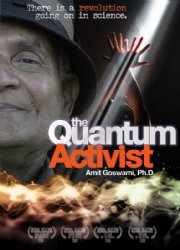Nine evocative words are the modern names of the archetypes: abundance, power, love, goodness, truth, beauty, justice, wholeness, and self. Spiritual wisdom traditions discovered them as ideals to live by that come to us via the experience we call intuition. Later the Greek philosopher Plato gave the name to the concept.
The archetypes are seen in the spiritual traditions as the purpose of our life. It is claimed that their exploration gives us satisfaction and happiness. Why? The archetypes are attributes of an underlying Oneness that is the foundation of human consciousness. Their exploration takes us back to the Oneness from the manifest ignorant consciousness that we live. Oneness is experienced as an expansion of consciousness, which is what brings satisfaction and happiness to our lives.
Religions call Oneness by the ambiguous name of God, clouding things up a little. Religions also simplify the definition of archetypes by saying that archetypes are God’s virtues: Living them we earn God’s favor; violating them we invite’s God’s wrath.
More objectively and phenomenologically, you can think of archetypes as the highest contexts for exploring new meaning and noble feelings; they are important for creativity.
At the societal level, the archetypes drive us toward civilization. Spirituality-oriented scientists such as Teilhard de Chardin, psychologists such as Carl Jung and James Hillman, and visionaries such as Sri Aurobindo see the embodiment of the archetypes as the purpose of evolution itself. To paraphrase Teilhard, the purpose is to bring heaven on earth.
You recognize the archetypes, no doubt, but perhaps you know them only vaguely. That vagueness about them is so common today because officially, as per the academics, they do not exist except in human imagination. But academics, thankfully, do not define or determine the opinion of every sector of the public. Thus, the archetypes are alive and well in the arena of creativity, especially in the fine arts, literature, and music, in those who actively pursue spirituality, and also, in a somewhat compromised form, in the arena of religion, in women who care about relationships, even in our politics where we call them human values and where political parties use them to point fingers at the opposition’s hypocrisy. Archetypes and human values are an area of some controversy.
However, there is one thing most people agree upon: There is a crisis today everywhere, and it has some connection with the degradation of human values. Crisis, as you likely know, besides being a danger, is an opportunity for us to become aware that we need to change. The current crisis is a dire warning that we are losing our valued institutions of freedom—capitalism, democracy and liberal education; if we lose freedom to pursue purpose and archetypes, we are in danger of losing civilization itself. It is time to make the case for a return of the archetypes in our midst, in our persona, in our professional lives, and in our social systems.
It is Pollyannaish to cry foul and offer no help. Are there guidelines for making such changes? There should be. The challenge is to develop the guidelines for the return of the archetypes. The good news is that there are new developments of human thought to provide us with guidance.
It started in the last century when two great thinkers, one in the West, Teilhard de Chardin, and the other from the East, Sri Aurobindo, both suggested that human evolution is a purposive evolution of consciousness. Its purpose is to take us to higher and higher capacities to embody the archetypes and develop virtues harnessing the energies of love. Teilhard put it bluntly, “Evolution will create heaven on earth.” Aurobindo laid out the details: “The human mind will rise above its current rationality to valuing intuition and develop an intuitive mind.” Aurobindo says, “We, humanity, have been connected before in the past in the era of the vital mind.” And the psychologist Carl Jung has discovered the evidence of such connectivity in the form of the collective unconscious. When humans are connected again in consciousness that is heaven, and the evolutionary movement is taking us there.
There is opposition in human consciousness to such a movement. Wisdom traditions maintained that ignorance of the archetypes in our manifest consciousness is the opposition. Under the religious worldview, the opposition was identified as the battle between good and evil.
Neuroscience has revealed that evil is natural; our brain has built-in negative emotional brain circuits—of anger, violence, greed, lust, and domination—that cause much of the evil. Neuroscience data bestows upon us a base-level human condition of four important aspects: 1) mechanical conditioning capable only of information processing, 2) fierce selfishness or me-centeredness, 3) the negative emotional brain circuits that make us negative in behavior, and finally, 4) some circuits of pleasure that gives us a drive toward pleasure. From this perspective, drive towards this human condition, call it ego, is the barrier for us to evolve toward connectivity.
What we need is a new paradigm based upon the wisdom that quantum physics has unexpectedly given us—namely, that quantum physics is the key that opens the door to a science of consciousness: All objects of our experience are possibilities for consciousness to choose from, with purpose. And quantum science reveals that the purpose at this stage of human development is the exploration and embodiment of the archetypes. Naturally, the evolutionary development of the human being is directed toward this as foreseen by de Chardin and Aurobindo.
In addition, quantum science is telling us something new. Yes, there is opposition to archetypes built into human nature. We are challenged by an enormous inertia. Besides, the manifest world is built based on a mechanism that produces forgetfulness of who we are, that we are potentially all One. The new message is this: The drive to forgetfulness sabotages our Oneness and produces mechanical tendencies, but quantum creativity and exploring the archetypes drive us toward purposive evolution.
Why the current crisis? Crisis is needed to provide motivation. We must bring back the archetypes and resume the journey of their exploration. Or else, we lose the civilization that we have earned through millennia of exploration.
Archetypal exploration has never been easy except for a few. Those few seem to dance to the tune of an unknown drummer, whereas ordinary people have been left to wonder how they do that. Can ordinary people overcome their inertia, overcome their drive toward forgetfulness and join the endeavor for reviving the archetypal exploration?
Crises gives us new motivation. That motivation has already generated a new science—quantum science—in the spirit of the original scientists: Newton, Darwin, Einstein, Heisenberg, Schrödinger, and the like. This new science has helped us solve the big mystery of the creative process. How those geniuses could explore the archetypes in the past is no longer a mystery; they had the uncanny ability to intuit the creative process and engage it without scientific guidance. But now with the creative process known, the rest of us have to feel stymied no longer; there is no barrier that we cannot convert into opportunities. Let’s all use the creative process and join the purposive movement of the return of the archetypes to ourselves and our societies! Let us live enchanted.



